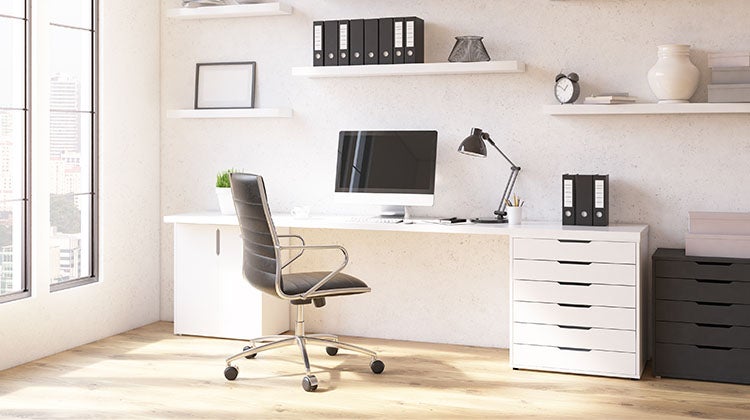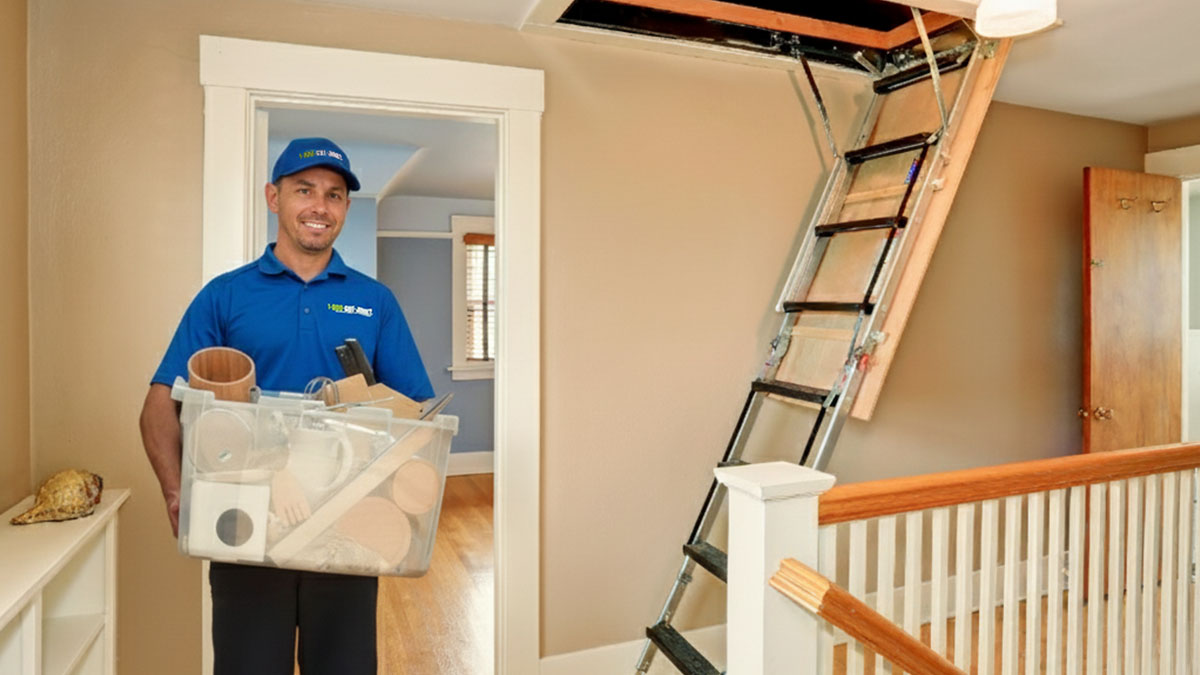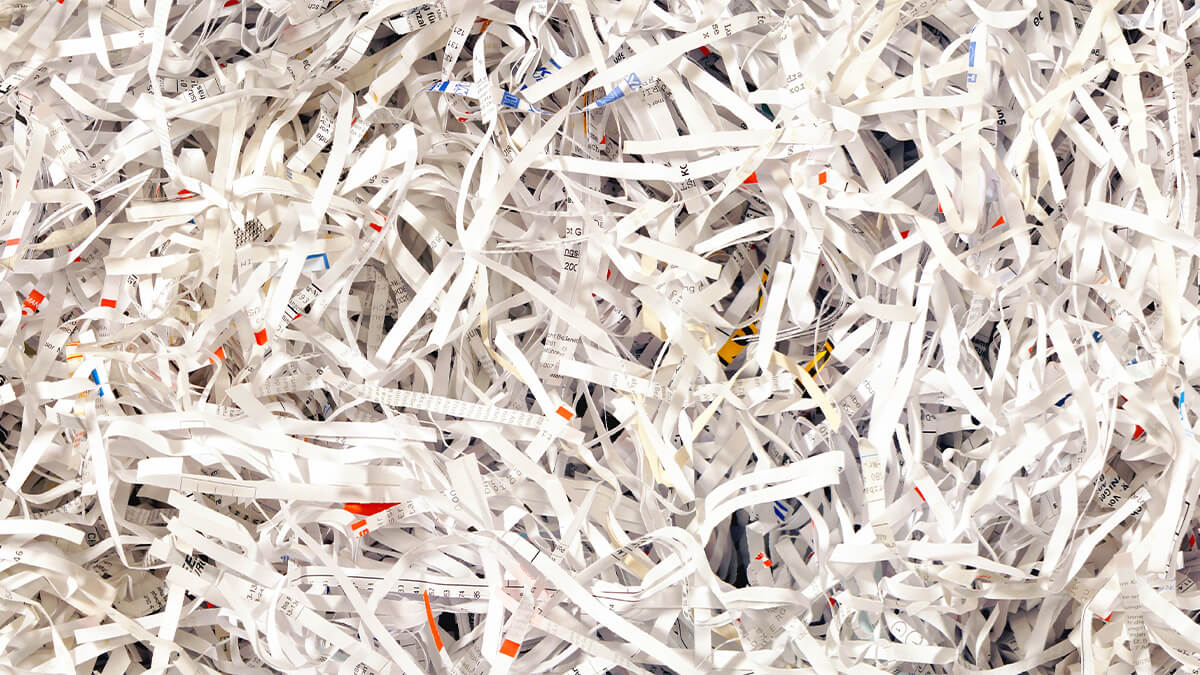Did you know that clutter can have a negative impact on your ability to focus and process information? A Princeton study found that clutter can psychologically compete for your attention. Specifically, clutter can cause you to have decreased performance and higher stress levels. If clutter is a problem in your life, it’s time to take control.
How does clutter affect you during office hours?
- It’s a distraction waiting to happen. Instead of focusing on the task at hand, clutter can weigh you down. It can also make you shift focus, which in turn can cause you to feel guilty about your lack of productivity.
- It causes you to waste time. Imagine that feeling of panic when you can’t find simple items, invoices or confidential information. When your desk or workspace isn’t in order, the extra time it takes to search through the mess can certainly add up quickly. Time is money!
It’s time to work harder and work smarter! Even when working at home the best way to sharpen your focus is to say goodbye to clutter.
How to declutter your home office
It's easy for office clutter to quickly accumulate without even realizing it. When you're ready to reclaim your home office, follow our five easy steps on how to declutter and improve your workspace!

1. Purge the paper piles
When it comes to clutter, one of the biggest office offenders is traditionally paper – piles and piles of it! If you’ve let paper accumulate, a good way to organize it is by sorting it into three piles; shred, recycle, keep. After you’ve narrowed down what you are keeping, consider digitizing any old documents by scanning them onto your computer. If you need to save a hardcopy, put it into storage.
Once you’ve purged the paper piles, try to minimize them from coming back by setting up a system of trays or file folders that are clearly labeled and make it a habit to use them.
2. Organize cords and cables
Whether it’s a bag full of unused cables or wires crossed over your workspace, it’s time to sort. Go through the cables and see which ones are needed and recycle the ones that aren't. To avoid unnecessary cords cluttering up your desk, try wireless devices or attach your cords together so they don’t become a distraction.
3. Take inventory of your supplies
It’s very easy to accumulate a large collection of writing utensils, but how many actually work? Go through your pens, pencils, and highlighters—if they don’t work anymore, throw them out. The ones that are still functional should be sorted into a desk organizer or placed into small containers on your desk. Next, move on to the office supplies like sticky notes, paperclips, and staples. Everything should have a designated space so it’s easy to locate and put away after you use it. If you realize you have too many supplies and unnecessary duplicates, it’s time to downsize by donating or recycling them.
4. Get rid of broken and outdated technology
Do you have two old laptop chargers tucked away in a drawer somewhere just in case you might need them? You should be selective with what you keep and get rid of the multiples you don’t actually need. If you’ve purchased new items like a printer, make sure you get rid of the old one. Do you have a broken computer that you’ve been meaning to fix? Be realistic with yourself and only keep the items that you will actually fix and use, anything else should be recycled.
5. Remove items that don’t belong
Oftentimes items that don’t actually belong in your home office can slowly accumulate. Whether a pair of kitchen scissors or coffee table book, make sure to put items back where they actually belong. Simply moving them around in your office to find a temporary home won’t be a solution in the long run.
How to make your office space more productive
With the change of scenery and increased distractions, it can be hard figuring out how to be more productive at home. Don’t worry, we’ve got you covered!

1. Declutter regularly
After following the above decluttering tips be sure to remember to continuously declutter to prevent junk from accumulating again. A little bit at a time keeps you from having to do a big purge every few months. It’s only natural that workspace clutter will appear again. To make sure it doesn’t get out of hand, set aside 10-15 minutes every week to clean your workspace. Eventually, you won’t even need to ‘make an appointment’ to declutter – keeping everything neat and tidy will come naturally.
2. Only keep daily items on your desk
To ensure you stay focused throughout your workday, it’s important to only keep items on your desk that you use on a daily basis. For most, this means a monitor and keyboard, your phone, and maybe a few extra office supplies like a stapler or stationery. Other items such as receipts and notebooks should be kept in filing cabinets or desk drawers.
3. Find a quiet area of your home to set up shop
Avoid high traffic areas of your home where other family members frequently go, as this can lead to increased interruptions. Having your own quiet space is a key part in staying focused throughout the work day. If you don’t have an extra room that can be a designated home office, try to convert your spare bedroom or basement into a multipurpose space, or consider transforming an unused closet into a practical office nook.
4. Get the right furniture
Working hunched over a table or sitting on a stool for prolonged periods can take a toll on your body. Instead of misusing the furniture you already have, invest in the right furniture to make your home office a more comfortable and productive space. Look for supportive chairs that have an ergonomic design and have adjustable height so they can work with any desk. If you don't have enough space for a full sized desk, consider one that attaches to a wall or a stand up desk.
5. Optimize your layout
The layout and design of your office impacts your productivity drastically. Make sure your office is well lit and gets as much natural light as possible so you feel simulated and aren't straining your eyes. If you get easily distracted, avoid placing your desk against a window as the added stimuli could impact your train of thought. However, if you are not easily distracted and you want a change of scenery, putting your desk against a window is ideal.
6. Implement storage solutions
In order to have a productive space you need to know where everything is. Office storage ideas don’t have to be complex, simply using a filing cabinet with clearly labeled sections can drastically help you stay organized. If you don’t have a large office, make the most of your vertical space by installing floating shelving and utilizing corner bookcases!
7. Take breaks and create boundaries
When you’re working from home, the lines between work and home life can easily blur. Allow yourself to take breaks just like you would in a traditional office and be sure to create boundaries for yourself. Don’t feel like you need to be tied to your computer all day long. If a task pops up out of your office hours, it can wait until tomorrow. Setting these boundaries for yourself will allow you to feel recharged and in the right mindset for the next day of work.
When you’re ready to make your home office a more productive space, call 1-800-GOT-JUNK?. Our happy, healthy teams can easily clear out the clutter with our No Contact Junk Removal, so that your home office can reach its full potential.






